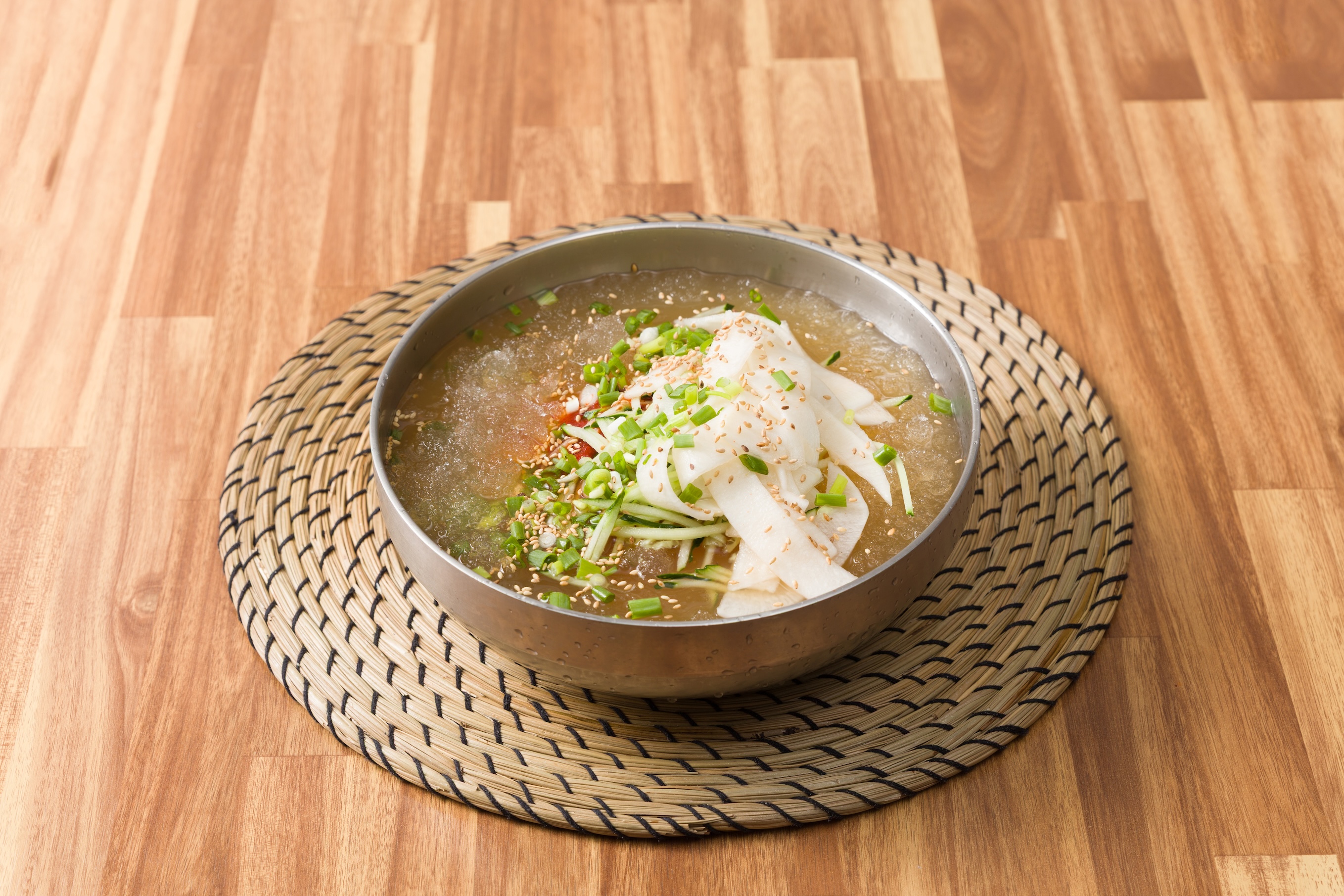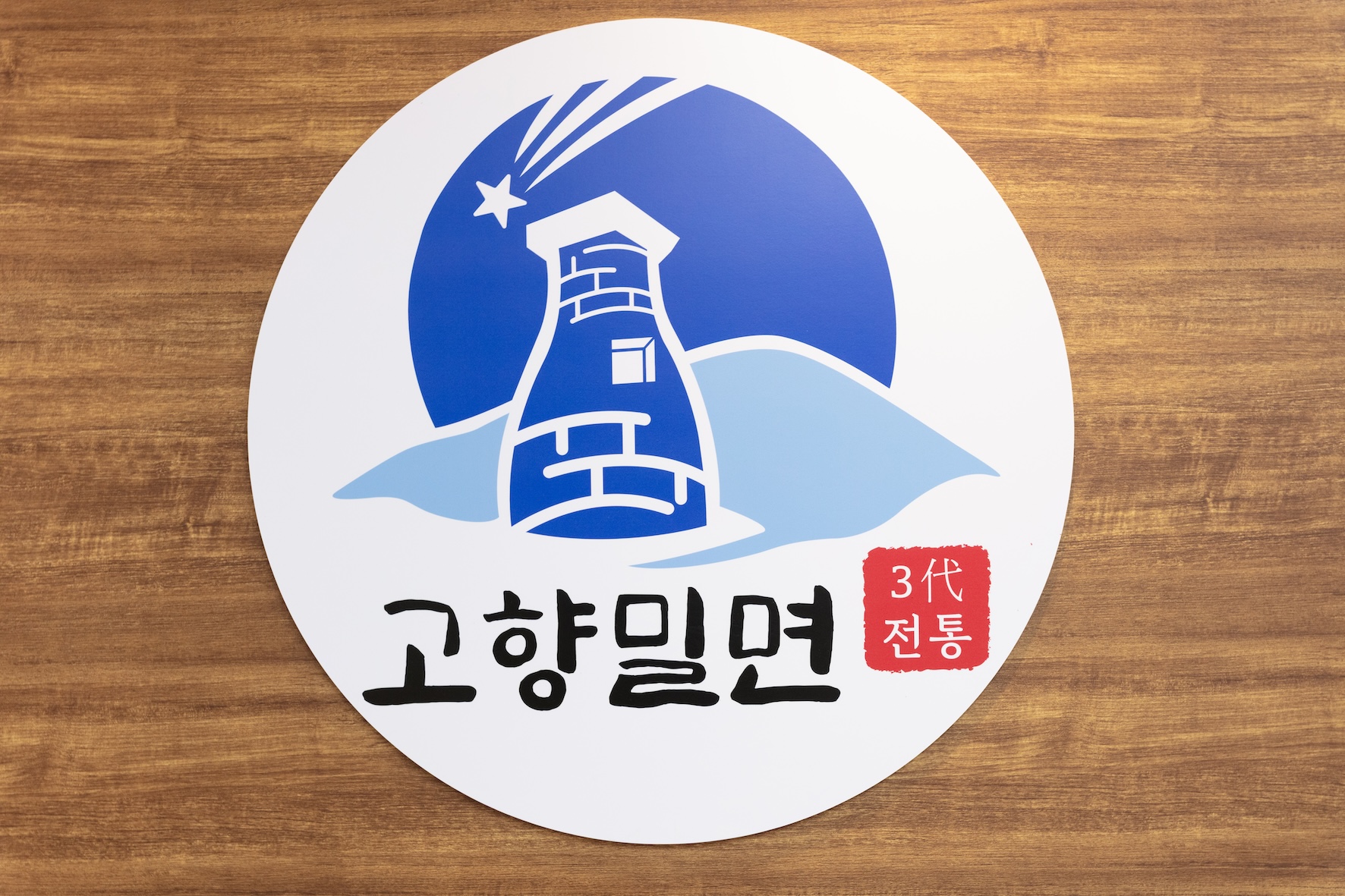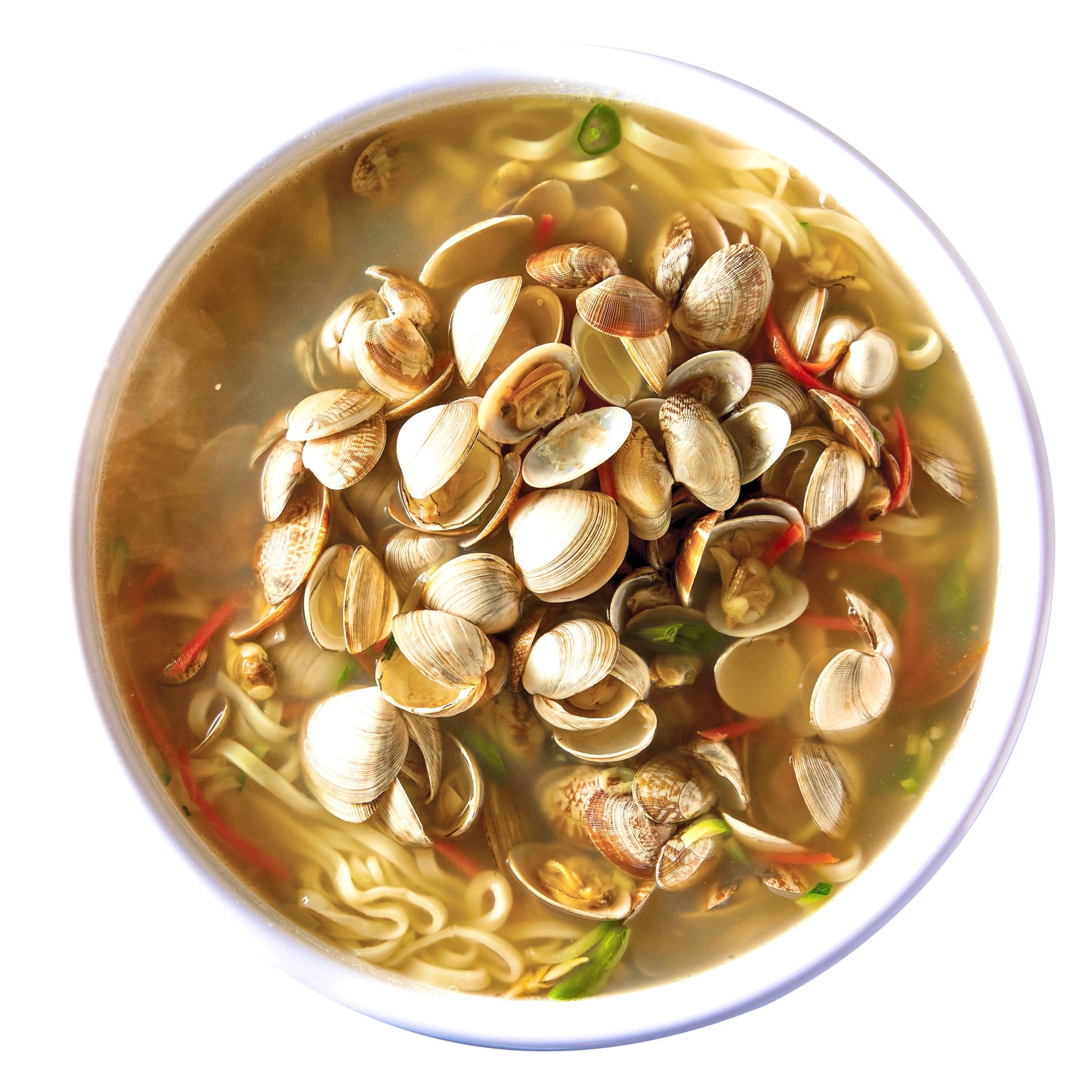Themed ArticlesA Special Noodle Journey in Gyeongju, Korea’s Ancient Capital2025.09.16
Gyeongju, the ancient capital with over a thousand years of history, blends serene cultural treasures with a vibrant food scene. Among its many flavors, noodle dishes—from traditional noodle soup, naengmyeon (cold buckwheat noodles), and jjolmyeon (spicy chewy noodles) to wheat noodles—have long been part of daily life and now define the city’s culinary identity. Today, visitors can follow Gyeongju’s Noodle Road, savoring everything from recipes faithfully preserved by master artisans to modern interpretations of classic cold noodles.
Ahwa Traditional Noodles, Bomun Branch — Signature Kalguksu by a Master Artisan
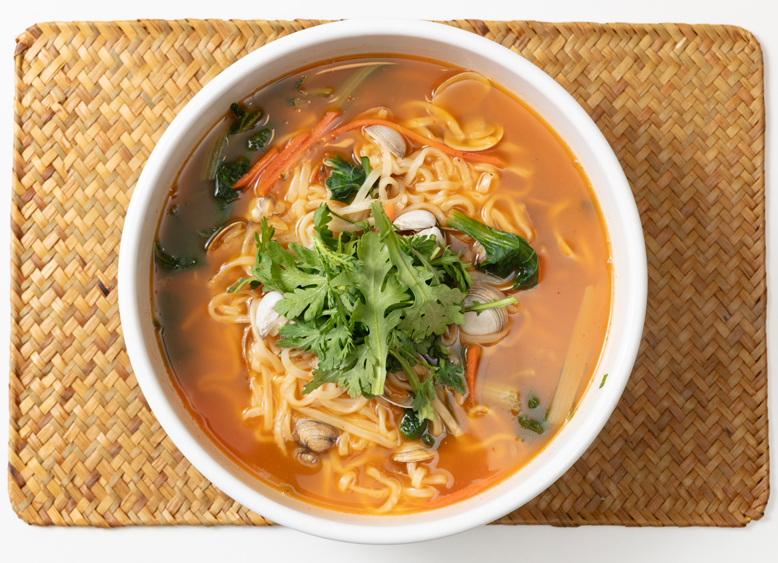
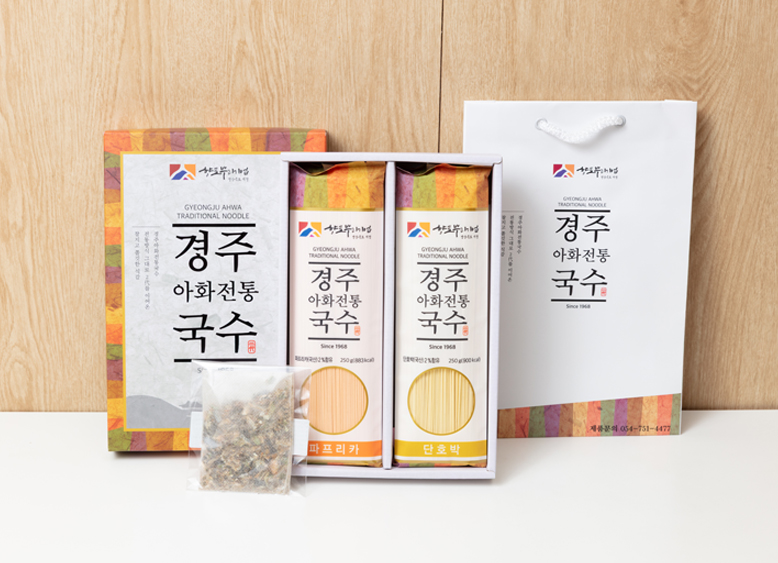
Run by a Gyeongju-designated master artisan, Ahwa Traditional Noodles (Bomun Branch) is a renowned eatery that carries forward the city’s traditional noodle-making culture. The master adheres to time-honored techniques, crafting noodles with skill and heartfelt dedication. These soulful flavors draw travelers back again and again. The signature dish is Dongji Kalguksu (Dongji Noodle Soup)—knife-cut noodles in a clear seafood broth simmered with surf clams and Manila clams. This bowl offers more than just a meal, delivering a light yet deeply satisfying flavor. Set amid the natural scenery of the Bomun Tourist Complex, the restaurant is ideally located for a leisurely lakeside stroll after dining.
 Recommended for travelers who want to savor traditional handmade noodles crafted with mastery.
Recommended for travelers who want to savor traditional handmade noodles crafted with mastery.
Park Yongja Gyeongju Myeongdong Jjolmyeon — The Original Home of Jjolmyeon in Gyeongju
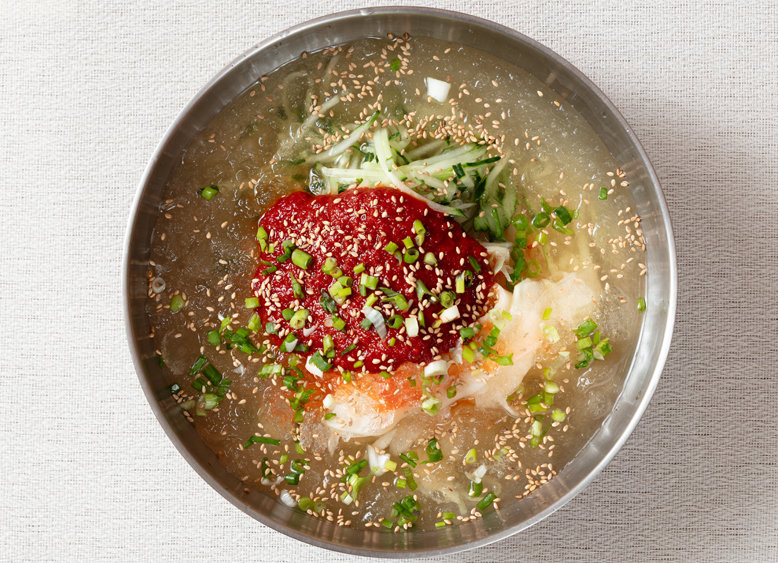
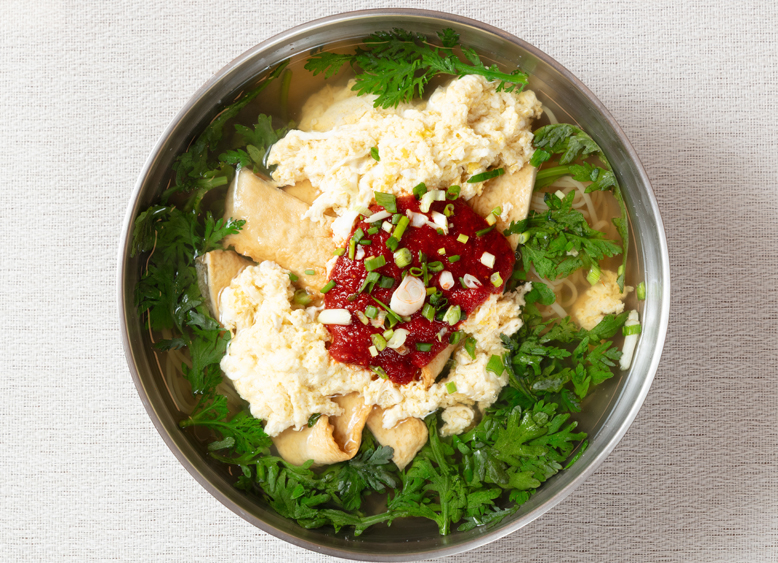
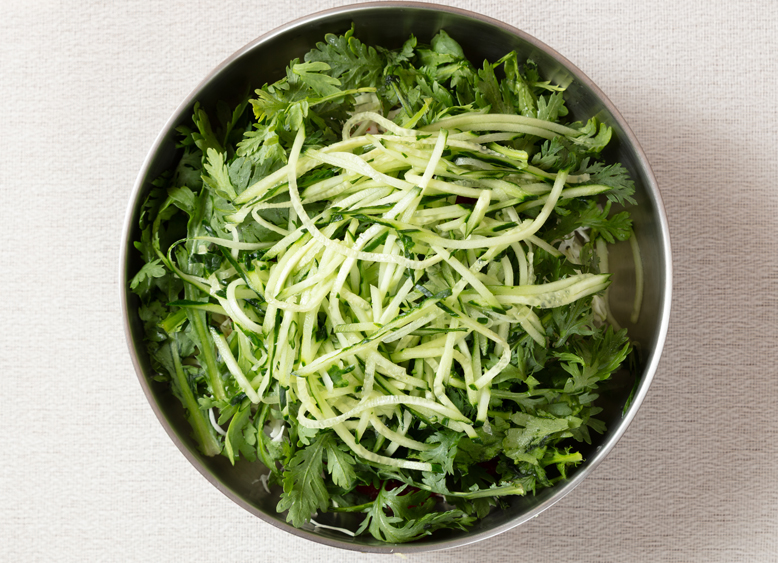
Though jjolmyeon (spicy chewy noodles) is a familiar dish for Koreans, not many realize that it first originated in Gyeongju. Park Yongja Gyeongju Myeongdong Jjolmyeon (main branch) is a long-established restaurant that first introduced jjolmyeon to the city and has preserved its flavor ever since. Jjolmyeon—chewy noodles tossed in a spicy-sour sauce—offers foreign travelers a novel texture and taste experience. The menu features Bibim Jjolmyeon (spicy mixed), Yubu Jjolmyeon (with fried bean curd), and Eomuk Jjolmyeon (with fishcake). In summer (May–September), the seasonal Cold Jjolmyeon is especially popular. Inside, the pride of being Gyeongju’s original jjolmyeon shop is clear. Light enough for a casual stop yet flavorful enough to keep you coming back, this place captures jjolmyeon’s unique charm.
 Recommended for travelers who want to experience the spicy-tangy kick of Gyeongju’s original jjolmyeon.
Recommended for travelers who want to experience the spicy-tangy kick of Gyeongju’s original jjolmyeon.
Gohyang Milmyeon — Pride as Gyeongju’s First Milmyeon House
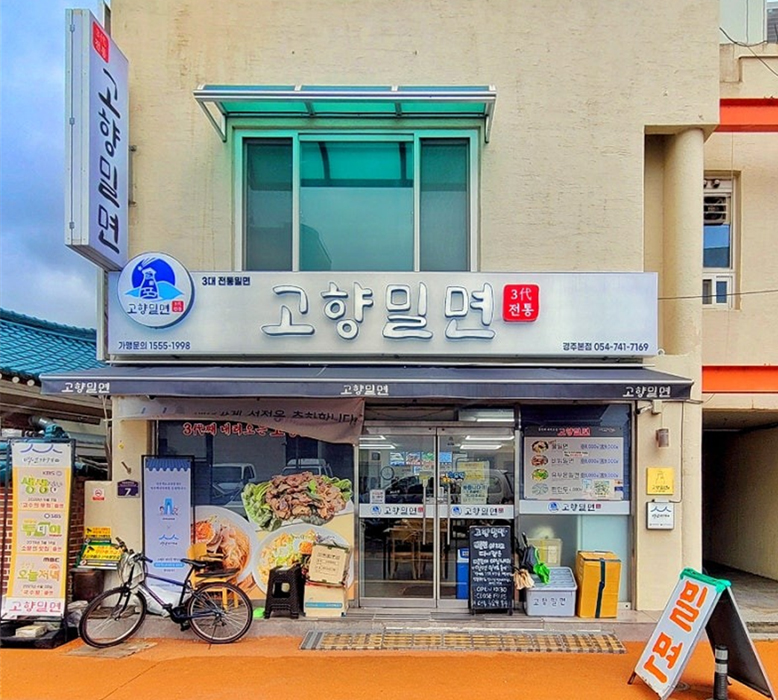
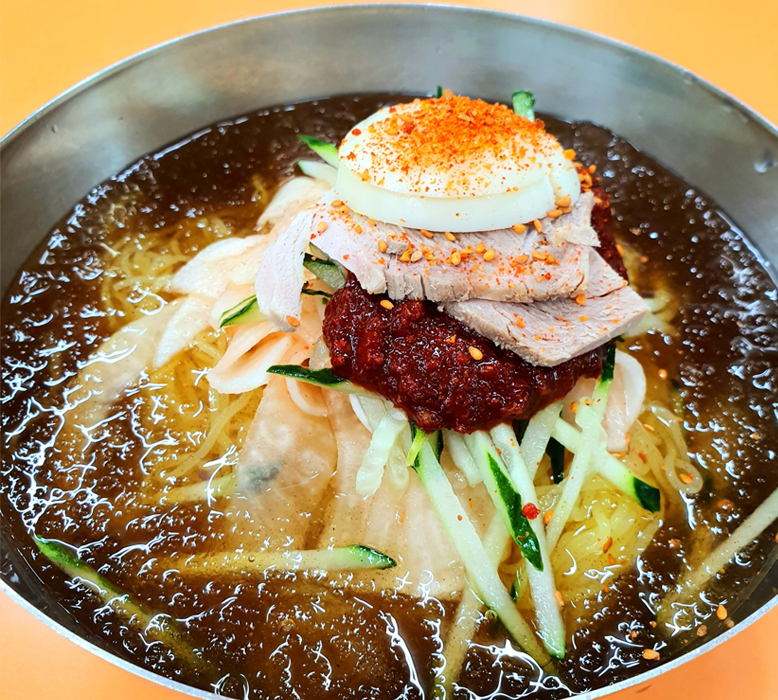
Although milmyeon (wheat noodles) is often associated with Busan, Gyeongju has cherished it for generations. Gohyang Milmyeon, recognized as the city’s very first milmyeon restaurant, has earned the government’s “ Long-Lasting Small Business” designation and “Clean & Safe Restaurant” certification—marks of both tradition and hygiene. Here, diners can enjoy Mul Milmyeon (refreshing cold broth), Bibim Milmyeon (spicy, sweet-tangy mixed noodles), and Yubu Onmilmyeon (hearty hot noodles with fried bean curd). The steamed mandu with potato-starch wrappers form an ideally matched pairing with the chewy noodles. These dishes are perfect for cooling down in summer and deliver memorable flavors to both locals and visitors. The taste, faithfully preserved over decades, continues to offer a special culinary experience for all.
 Recommended for travelers who want a classic bowl of milmyeon with clean, deeply flavored broth.
Recommended for travelers who want a classic bowl of milmyeon with clean, deeply flavored broth.
Pyeongyang Galbi — Pyeongyang Naengmyeon Crafted by a Certified Master
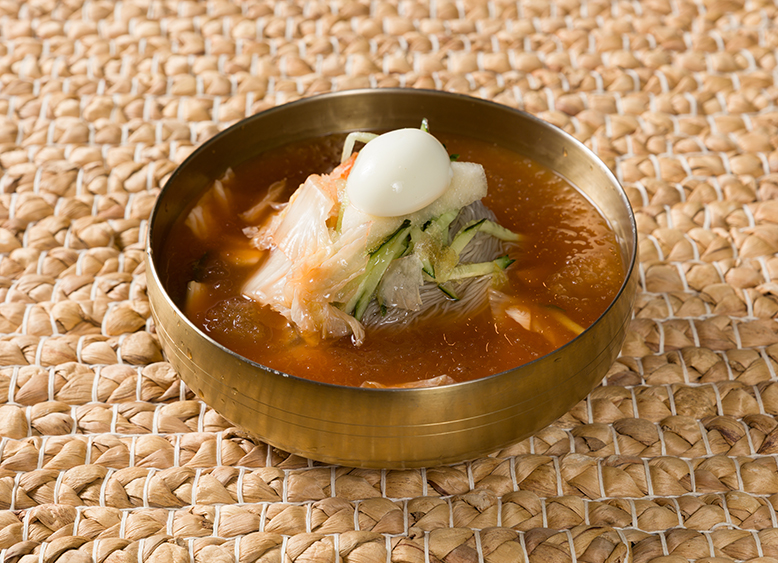
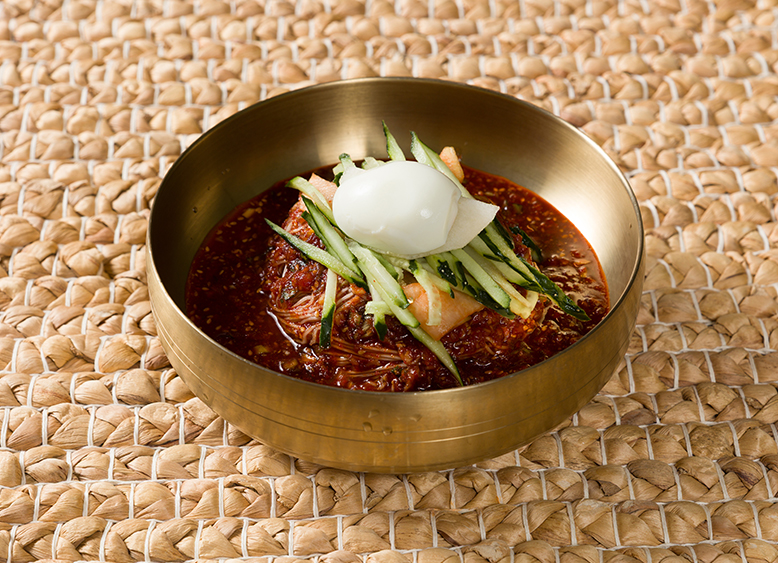
Naengmyeon (cold buckwheat noodles) is a traditional cold noodle dish with two main variations: Pyeongyang-style features buckwheat-rich noodles in a clear, delicate broth, while Hamheung-style uses starchier noodles, often paired with a spicy sauce. At Pyeongyang Galbi in Gyeongju, a certified successor of Pyeongyang Naengmyeon presents both styles with authentic mastery. The restaurant has gained national recognition through TV appearances, including Heo Young-man’s Food Travelogue, and is helmed by an owner officially registered as a government-certified master chef. Every bowl reflects that skilled touch. Beyond naengmyeon, the restaurant also offers galbi and other dishes, making it an excellent choice for families.
 Recommended for travelers who want to experience authentic Pyeongyang Naengmyeon and a master chef’s skill.
Recommended for travelers who want to experience authentic Pyeongyang Naengmyeon and a master chef’s skill.
Gyeongju is not only a city of history and culture but also a paradise of noodle cuisine. From the artisan kalguksu at Ahwa Traditional Noodles, to Park Yongja’s pioneering jjolmyeon, the rich flavors of milmyeon at Gohyang Milmyeon, and the authentic mastery of Pyeongyang Galbi’s naengmyeon—each restaurant tells its own story and offers unforgettable flavors. When you visit Korea’s thousand-year-old capital, be sure to explore its historical sites—and don’t miss the chance to journey along Gyeongju’s Noodle Road for a truly special noodle experience.

